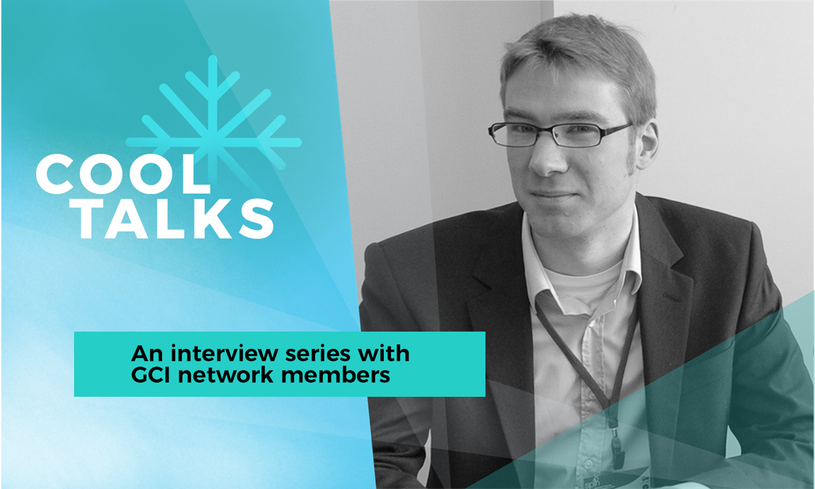Forest dieback and red rivers: F-Gas policy expert Daniel de Graaf (UBA) shares some childhood memories about why he personally cares about the environment and how he contributes to climate action in the cooling sector today.
Researching environmental risks and finding viable solutions, advising policy-makers and informing the public, as well as implementing German environmental law: the Federal Environment Agency (UBA) is the central scientific environmental protection agency under the Federal Ministry for the Environment, Nature Conservation and Nuclear Safety (BMU) in Germany, with experts from a wide range of ecological fields. Since 1974, the UBA has been working on a broad spectrum of issues such as climate protection, waste avoidance or pesticide approval. This also includes the HFC-phase down.
The UBA promotes the transition to Green Cooling not only nationwide, but also beyond the country’s borders. It provides support to international policy makers and thereby assists developing and emerging countries in their efforts within the framework of the Montreal Protocol and Kigali Amendment. We spoke to Daniel de Graaf, GCI network member and F-Gas Policy Expert at UBA, about the ideal RAC sector and what drives him personally to make this vision a reality.
Mr. de Graaf, what is your academic background and how long have you been working in this field?
After my graduation in Biochemistry in 2008, I started working on alternatives to fluorinated greenhouse gases in products and processes with a focus on hydrofluorocarbon refrigerants at the German Environment Agency (UBA). So, it is more than ten years now that I am seeking for technologies and equipment especially in the field of stationary air conditioning which avoid the use of halogenated greenhouse gases such as HFCs.
Why do you personally care about the environment?
I am a child of the 1980ies when environmental issues such as ‘Waldsterben’ (forest dieback), the problems with nuclear power and polluted rivers were discussed broadly in public. Back in 1986, I indirectly witnessed an incident at the Swiss chemical company Sandoz. As a result, the river Rhine, running past my hometown, was coloured red. As a ten-year-old, this came as a shock to me. There were plenty of such incidents at that time. They revealed that our western way of life has been threatening the biosphere and ourselves being part of it. However, there has also been hope that we can do something about it, that there are alternatives which enables our civilization to live in a sustainable way. For example, by replacing nuclear and coal power with renewable energies.
Truth be told: Mr. de Graaf, do you have a climate friendly air conditioning at home?
In theory yes, I can cool my apartment with water, chilled via the geothermal probe of a heat pump. But I never use it since it cools the floor. This is not very comfortable when you walk barefoot at home in the summer season. So even during the very hot summer of 2018 in Germany, my family and I kept our apartment cool by opening the windows at night and having the blinds down and windows shut during the day.
What is your motivation to support the dissemination of Green Cooling?
Limiting global warming to 1.5 °C compared to pre-industrial levels plays the key role in sustaining our livelihoods. It may sound dramatic, but it is a question of whether there will still be a highly organised human society of billions as we know it today in the 22nd century or just a few dispersed bunches of people struggling hard to survive on the last patches on earth that are not completely devasted by droughts, desertification, floods and other consequences of man-made climate change exceeding tipping points decades before.

